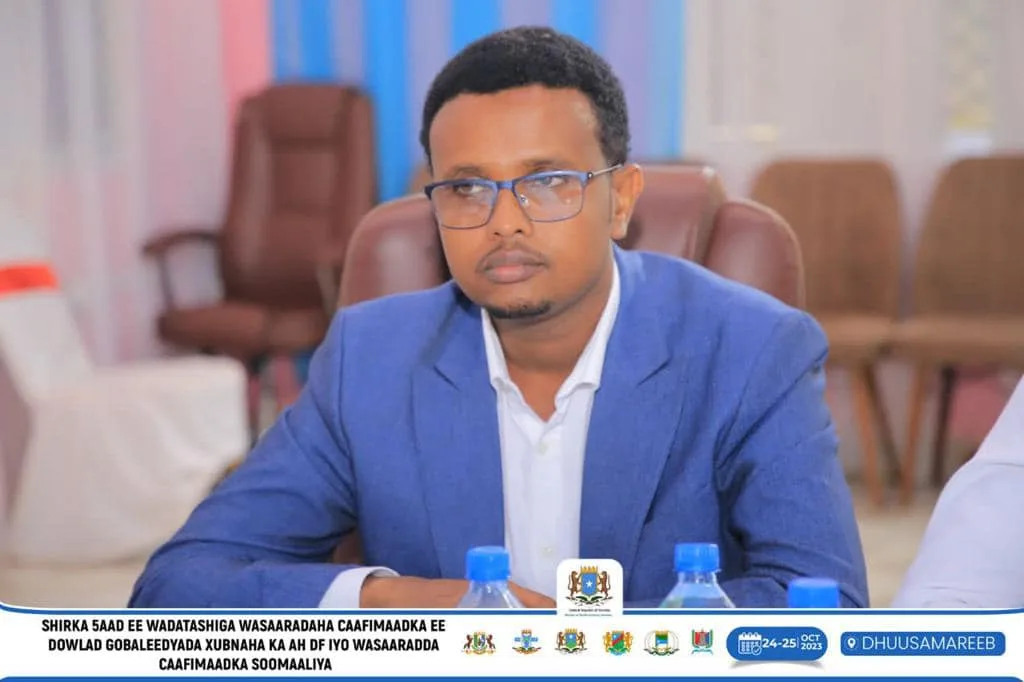WHO ARE WE?
The Somali National Institute of Health (NIH) is a semi-autonomous national public health institution under the Ministry of Health and Human Services (MOH&HS). Its mission is to improve the health of the Somali people through innovative integration of research, education, training, and prevention and control of diseases. The NIH conducts and supports scientific research to address important public health issues for the country and to provide evidence-based public health information for decision-making. The NIH also aims to build resilient systems that can prevent, promptly detect, and effectively respond to public health risks and emergencies through attaining and sustaining IHR (2005) core capacities.
In 2018 the government through a Cabinet council approved to formalize the institute and was subsequently endorsed by the Ministry of Health and Human Services’ (FMOH & HS) and finally through a Ministerial directive outlining the NIH assigned roles. The National Institute of Health will seek to address shortcomings in Somalia’s health sector including allocating the available resources in other services that are not relevant to the country’s health sector.
To ensure effective prevention, detection, preparedness, and response to outbreaks and other public health emergencies to achieve universal health coverage in line with the Sustainable Development Goals, Agenda 2030, and the African Union Agenda 2063. NIH will seek to become an outstanding health institution that improves the health of the Somali people through innovative integration of research, Surveillance, training, and prevention as well as control of diseases to achieve the highest quality of life and equity in the health sector in Somalia.
NIH works to turn scientific discoveries into better health for all. As one of the public funders of biomedical and behavioral research in Somalia, NIH is the driving force behind years of advances that improve health, revolutionize science, and serve society more broadly.
Evidence of the varied, long-term impacts of NIH activities comes from a variety of sources, ranging from studies on specific health topics to broader analyses of NIH as a whole.
We Advance Research, Surveillance, Training, and Prevention
NIH Mission
NIH works 24/7 to protect Somalia from health threats, both foreign and in Somalia whether diseases start at home or abroad, are chronic or acute, curable, or preventable, human error or deliberate attack, NIH fights disease and supports communities and citizens to do the same.
NIH increases the health security of our nation. As the nation’s health protection agency, NIH saves lives and protects people from health threats. To accomplish our goal, NIH conducts critical science and provides health information that protects our nation against expensive and dangerous health threats and responds when these arise.
NIH Goal
- Detecting and responding to new and emerging health threats
- Tackling the biggest health problems causing death and disability in Somalia
- Putting science and advanced technology into action to prevent disease.
- Promoting healthy and safe behaviors, communities, and the environment
- Developing leaders and training the public health workforce, including disease detectives
- Taking the health pulse of our nation
NIH Vision
NIH launched an effort to refine and modernize its structures, systems, and processes around developing and deploying our science and programs. The goal was to learn how to pivot our long-standing practices and adapt to pandemics and other public health emergencies, then apply those lessons across the organization. The effort included a review of key workflows, with a particular focus on ensuring NIH’s science reaches the public in an understandable, accessible, and implementable manner as quickly as possible.
OUR PLEDGE TO THE NATION
- Be a diligent steward of the funds entrusted to our agency
- Provide an environment for intellectual and personal growth and integrity
- Base all public health decisions on the highest quality scientific data that is derived openly and objectively
- Place the benefits to society above the benefits to our institution
- Treat all persons with dignity, honesty, and respect
To Achieve Universal Health Coverage in Somalia
NIH Leadership


Dr.Abdikamal Ali Salad
Consultant

Hon. Dr. Hussein Abukar Muhidin
Executive Director

Mohamed Mohamud Shobow
Deputy Director

Prof. Khalif Bile Mohamud
Board Chair
Our Partners









